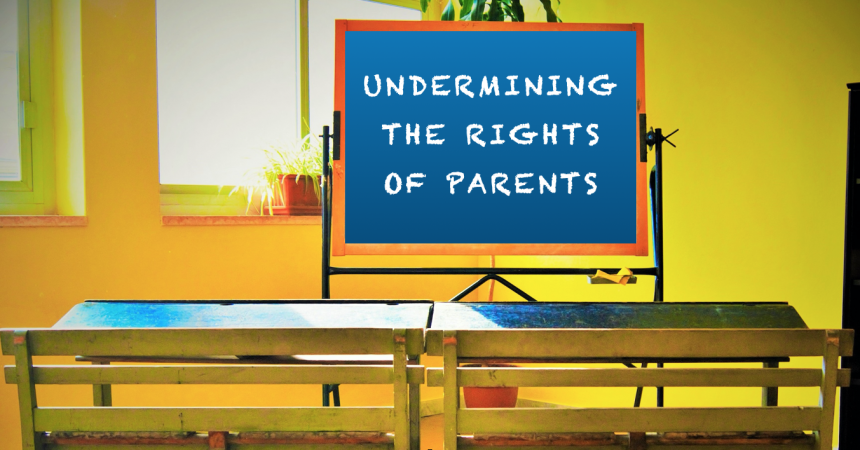
Why does the state not understand the Constitutional right of parents to freedom of conscience?
The Constitutional right to not attend religious instruction in schools is a sub-section of the Constitutional right to Freedom of Conscience and the free profession and practice of religion. The courts have recognised that this is not confined to those that have a religious conscience. It applies to all.
Article 44.2 states that:
1. Freedom of conscience and the free profession and practice of religion are, subject to public order and morality, guaranteed to every citizen.
The Right to not attend religious instruction is a sub-section of the right to freedom of conscience.
44.2.4. Legislation providing State aid for schools shall not discriminate between schools under the management of different religious denominations, nor be such as to affect prejudicially the right of any child to attend a school receiving public money without attending religious instruction at that school.
The courts have said that Article 42 must be read in the context of Article 44.2.4. Article 42 of the Constitution speaks about the inalienable rights of parents in relation to the education of their children.
The courts have also said that Article 42 must be looked at in conjunction with Article 41 which refers to the family as the natural primary and fundamental unit group of society, and as a moral institution possessing inalienable and imprescriptible rights, antecedent and superior to all postive law.
It is not up to the State or the NCCA, schools, teachers or anybody else to decide for parents what is or is not against their conscience. They simply have not got the right. What is it about Articles 41, 42 and Article 44 that they do not understand?
The Irish version of the Constitution takes precedence over the english version. The words ‘teagasc credimh’ in Article 44.2.4 translates directly to ‘religous teaching’ not religious instruction. This means that parents have a Constitutional right to ensure that their children do not attend religious teaching on the basis of conscience.
This is reflected in the Education Act, where the word ‘instruction’ is used to mean teaching in any subject, not just religion. Yet the Department of Education is now trying to define ‘religious instruction’ as meaning instruction according to the rites of one religion only. By doing this, they are trying to deny parents their Constitutional right for their children to not attend what the Department calls curriculum religious education.
But the courts in Ireland have never defined religious instruction as instruction according to the rites of one religion. That analysis simply undermines the Constitutional right to freedom of conscience and the Constitutional rights of parents in relation to the religous and moral education of their children.
Despite these Constitutional rights the Irish State has decided for all parents that curriculum religious education is suitable for their children! They totally disregard the Constitutional rights of parents and undermine their right to freedom of conscience.
Article 44.2 states that:
1. Freedom of conscience and the free profession and practice of religion are, subject to public order and morality, guaranteed to every citizen.
2. The State guarantees not to endow any religion.
3. The State shall not impose any disabilities or make any discrimination on the ground of religious profession, belief or status.
4. Legislation providing State aid for schools shall not discriminate between schools under the management of different religious denominations, nor be such as to affect prejudicially the right of any child to attend a school receiving public money without attending religious instruction at that school.
4. (In Irish, which takes precedence) Reachtaíocht lena gcuirtear cúnamh Stáit ar fáil do scoileanna ní cead idirdhealú a dhéanamh inti idir scoileanna atá faoi bhainistí aicmí creidimh seachas a chéile ná í do dhéanamh dochair do cheart aon linbh chun scoil a gheibheann airgead poiblí a fhreastal gan teagasc creidimh sa scoil sin a fhreastal.







0 Comments
No comments!
There are no comments yet, but you can be first to comment this article.